|  Airline profits will be 20% higher than expected this year despite razor-thin margins, according to the industry's main representative body. The International Air Transport Association (IATA) said increased demand was helping pack planes to record levels. It predicts that airlines will enjoy $12.7 billion(€9.7 billion) in profits this year, compared with $7.6 billion (€5.8 billion) last year, though margins will remain "paper thin" – this profit represents just 1.8% of a predicted $711 billion (€546 billion) in sales. But the organisation said 2013 should still be the third strongest year for airlines since 2001, when the events of 9/11 sent the industry into steep decline. It said the decision not to add extra seats to chase market share would pay off this year, lifting average seat occupancy to a record 80.3%. This is the second consecutive year that airlines will not expand seat numbers to match the growth in demand. At the organisation's AGM in Cape Town yesterday, IATA chief executive Tony Tyler described air travel as a very tough business. "The day-to-day challenges of keeping revenues ahead of costs remain monumental. Many airlines are struggling. On average, airlines will earn about $4 for every passenger carried," he said. But falling oil prices – expected to average $108 per barrel of oil – are expected to offset the weak economic growth. Source: independent.ie 2006 is Safest Year on Record for Air Transport The International Air Transport Association (IATA) recently released its annual Safety Report, showing that 2006 was the safest year on record. "The safety results for 2006 are impressive. Air transport remains the safest form of travel. But we must do even better. With demand for air travel increasing at 5-6% per year, the accident rate must decrease just to keep the actual number of accidents in check. The goal will always be zero accidents. And the interim target is to reduce the industry rate to 0.49 accidents per million flights in 2008&emdash;a 25% improvement," said Giovanni Bisignani, IATA's Director General and CEO. The 2006 industry hull loss rate was 0.65 accidents per million flights for Western-built jets, which is equivalent to one accident for every 1.5 million flights&emdash;a 14% improvement on 2005. IATA's member airlines performed significantly better than the global average with a hull-loss rate of 0.48 accidents per million flights, or one accident for every two million flights. There were 77 accidents in 2006, compared to 111 in 2005. Of these 77 accidents, 46 involved jet aircraft and 31 involved turbo-props. The full report is available for purchase at http://www.iata.org/ps/publications/safety_report.htm.
Toronto, Canada: Airport Inefficiency Hits Passengers
With 25% Hike in Airport Improvement Fee
IATA Calls for Review of National Airports Policy-  Once again we see clearly that the Greater Toronto Airports Authority (GTAA), Toronto's airport monopoly, is out-of-step with the industry. Rather than follow commercial commonsense and get costs under control, their penchant for double digit price increases is now aimed at the air traveler,” said Giovanni Bisignani, Director General and CEO of the International Air Transport Association (IATA). Once again we see clearly that the Greater Toronto Airports Authority (GTAA), Toronto's airport monopoly, is out-of-step with the industry. Rather than follow commercial commonsense and get costs under control, their penchant for double digit price increases is now aimed at the air traveler,” said Giovanni Bisignani, Director General and CEO of the International Air Transport Association (IATA).
Bisignani's comments were in response to the GTAA's announcement of a 25% increase in its airport improvement fee (AIF) from C$12 per passenger to C$15. IATA is in a long-standing dispute with GTAA over funding for its extravagant airport expansion project which generated over C$6 billion in debt. As the industry struggles to recover from US$30 billion in losses accumulated over its three worst years, cost reduction is an industry priority. Record high fuel prices are adding to cost pressures. IATA is working with airport and air navigation service providers around the world to set efficiency targets that will result in meaningful cost reductions. ‚“While the rest of the industry is looking to increase efficiency, Toronto is in a league of its own with respect to price hikes. GTAA increased the landing fee rate by 208% since 1998 and we don't see any relief in sight,‚” said Bisignani. “This increase is yet another reminder of the need for a comprehensive review of the National Airports policy,‚Äù said Bisignani. IATA continues to urge the Government to reduce Crown Rents charged to the airport and improve the governance of airport authorities. ”Successful resolution of the issues at Toronto is essential to the health of Canada's air transport industry. We hope that Minister LaPierre will make a review of the National Airports Policy and successful resolution of the Toronto issue priorities for his Ministry,‚Äù said Bisignani. GTAA increased the landing fee rate year-on-year by 35.6% in 1999, 1.2% in 2000, 12.1% in 2001, 22.0% in 2002, 28.8% in 2003 and 27.4% in 2004. FAA Approves IATA's Airline Safety Audit Programme GENEVA: The US Federal Aviation Administration's approval today of the IATA Operational Safety Audit (IOSA) programme "is a valuable step in strengthening global safety standards," said Giovanni Bisignani, IATA Director General and CEO. "The United States and its aviation partners around the world share a commitment to improving global aviation safety. This new audit accreditation programme is an important step toward achieving a single international set of audit standards that will make flying safer," said FAA Administrator Marion C. Blakey. Many governments, including the US Department of Transportation, require their flag airlines to audit foreign code-share partners. The FAA's recognition of IOSA [http://www.faa.gov/apa/pr/2004/july04.cfm] permits US carriers to use the programme's accredited audit organisations to comply with the US audit requirement rather than perform an audit themselves. "IOSA is the world's only airline safety audit programme incorporating globally recognised standards and best practices," Bisignani said. "IOSA is available to all airlines and will bring great benefits by confirming the thoroughness of operational structures and enhancing code-share opportunities." Bisignani noted that airlines in the US and elsewhere will be spared performing redundant audits of prospective code-share partners provided those partners hold upstanding IOSA audits, which are valid for two years. To make IOSA as accessible as possible to all airlines, IATA is absorbing the programme's operating costs in 2004. "IOSA creates the first global industry benchmark for safety while removing the inefficiency of repetitive auditing," he said. "Today's announcement is not only an approval but a validation of the joint commitment by FAA and IATA to improving global aviation safety." Following are highlights of a Q&A on IOSA. Q: What is the goal of IOSA? A: To provide a standardized audit programme of the operational management and control systems of an airline that is based on internationally-recognised standards and supported by a rigorous quality assurance process, for the purpose of serving the airline industry in terms of improving worldwide operations and reducing the number of operational audits that are conducted. All airlines (IATA and non-IATA) are welcome to seek an IOSA audit. All IATA member airlines have committed to seek registration as an IOSA Operator by January 1, 2006. Q: Which operational areas of an airline are audited under the IOSA Programme (i.e. what is the scope of the audit)? A: IOSA audits the following areas: · Corporate Organisation & Management · Flight Operations · Operational Control/Flight Dispatch · Aircraft Engineering & Maintenance · Cabin Operations · Aircraft Ground Handling · Cargo Operations · Operational Security | 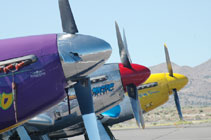
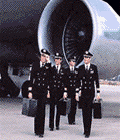
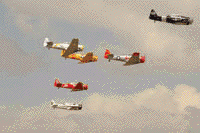
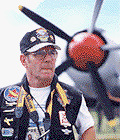
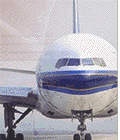
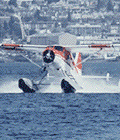
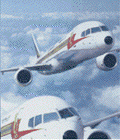
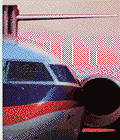



 Once again we see clearly that the Greater Toronto Airports Authority (GTAA), Toronto's airport monopoly, is out-of-step with the industry. Rather than follow commercial commonsense and get costs under control, their penchant for double digit price increases is now aimed at the air traveler,” said Giovanni Bisignani, Director General and CEO of the International Air Transport Association (IATA).
Once again we see clearly that the Greater Toronto Airports Authority (GTAA), Toronto's airport monopoly, is out-of-step with the industry. Rather than follow commercial commonsense and get costs under control, their penchant for double digit price increases is now aimed at the air traveler,” said Giovanni Bisignani, Director General and CEO of the International Air Transport Association (IATA).